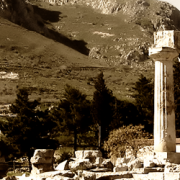The Unconscious Ill-Equipping Of The Saints
The good Bible teaching that occurs in many churches is not enough to equip Christ following congregants to interact effectively with the world. In fact, I believe that some pastors are unconsciously hindering their flocks, and are, as a result, “ill-equipping” them for the work of ministry.
I recently heard a tremendous quote, and I will try to paraphrase. The speaker spoke of the American Church and said, “We are a subculture of a sub culture. We read each other’s book, we sing each other’s songs, and we scratch each other’s backs”.
I completely agree that the Body of Christ is a sub culture, and that each movement or denomination is a further sub culture, and finally, that each individual church within a movement or denomination is a sub, sub, sub culture. There is nothing wrong with that…to a point.
Each culture and sub culture has its own language. The lack of awareness that we (the Church) have regarding our sub, sub culture language is the thing that concerns me. What do we sound like to the world?
As followers of Jesus, we have been given the Great Commission, to “make disciples of all nations”. Most of the people in our churches understand and agree with that.
However, here is the rub. Here is the problem. The people in our churches often parrot the words they hear us pastors speak. If they hear us only speak “Christianese”, and our particular brand of “Christianese”, then that is how many of them will speak. They will seek to explain the eternal truths of God by using language that is familiar only to their sub, sub culture.
I believe that we who stand in the pulpit need to speak in the language of our culture and of the current generation. We do not need to descend into vulgar speaking or innuendo, but we need to communicate the truths of Jesus in ways that would make sense to any unbeliever walking in off the street.
The purpose for that is not just for the unbeliever who walks into our church. The bigger and perhaps more important purpose is that we will equip our churches to use words that the unbelieving world will recognize. Without telling them how to communicate the Gospel, we will be bestowing upon them a language, a vocabulary, and a communication style, whereby they will be unconsciously equipped to speak to an unbelieving world.
A word to those who preach and teach: Let us be careful to not use decades old “Christianese” simply because that is what we grew up on. May the younger generation of pastors not only use the Christian sub culture language of their generation. May we read and listen widely, that we may adopt the language of this generation, so that we might more effectively preach the Gospel, and equip our listeners to share the Gospel in a language that can be understood by the world around us.





